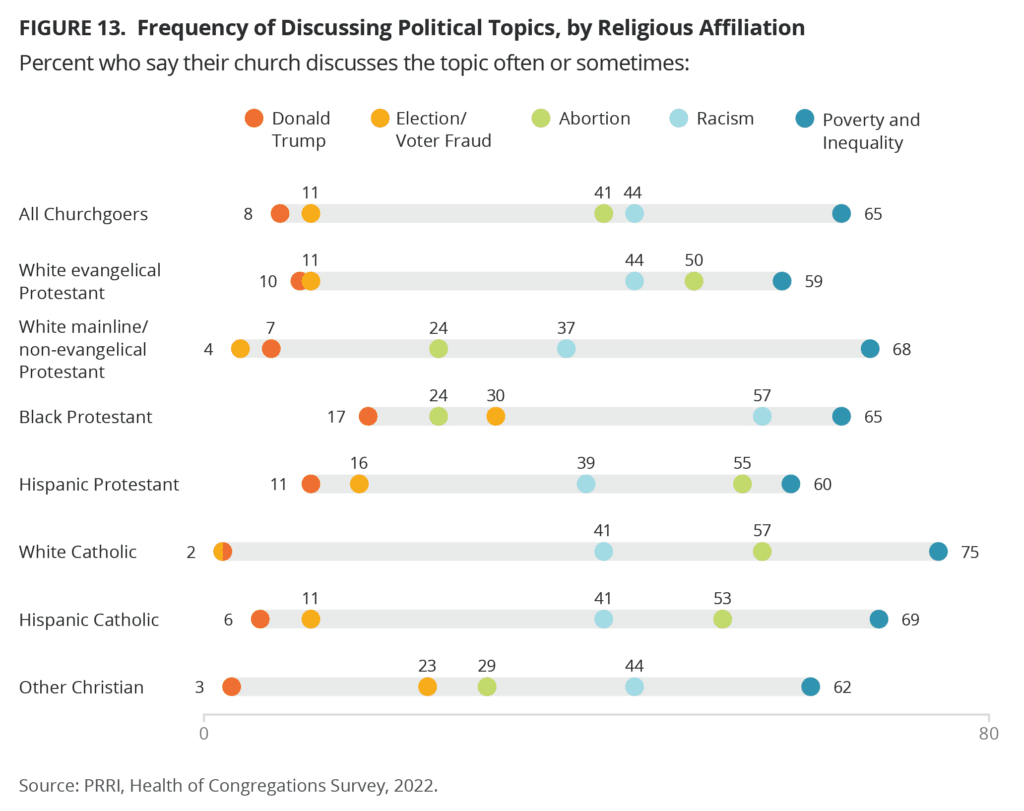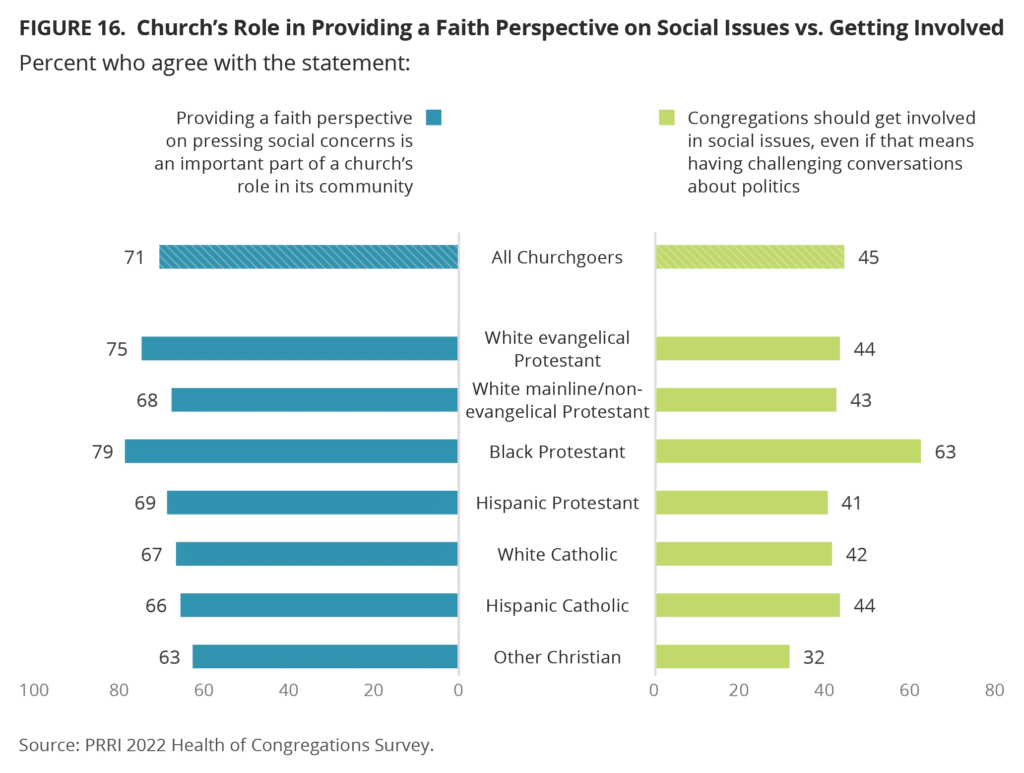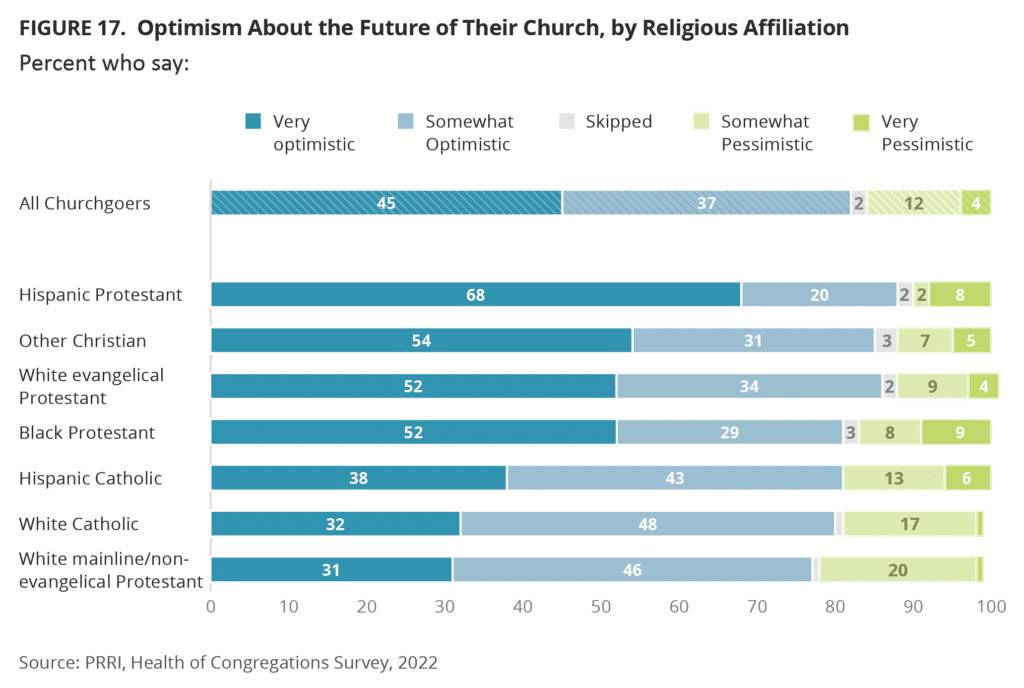Experiences at Their Churches

This article, “Experiences at Their Churches,” summarizes the fourth section of a recent report by the PRRI’s 2022 American Values Atlas titled “Religion and Congregations in a Time of Social and Political Upheaval” (you can access the full report here https://www.prri.org/research/religion-and-congregations-in-a-time-of-social-and-political-upheaval/). This is the fourth and final installment in this series of articles on Church Encourager.
A recent report from PRRI delves into the discussions in Christian churches on vital political topics, including abortion, Donald Trump, election and voter fraud, racism, and poverty and inequality. According to the findings, the most frequently discussed topic among congregations is poverty and inequality, with nearly two-thirds of churchgoers (65%) saying their clergy often address this issue. Abortion (41%) and racism (44%) follow behind, while only around one in ten churchgoers says their clergy often discuss Donald Trump (8%) or election and voter fraud (11%).

However, the frequency of these discussions varies significantly across Christian denominations. Abortion is most commonly discussed among white Catholics, Hispanic Protestants, and Hispanic Catholics, while poverty and inequality are prevalent topics in all groups, with the highest percentages among white Catholics (75%). Regarding election and voter fraud, Black Protestants are the most likely to hear their clergy discuss this topic.
The church’s role in addressing social issues is seen as crucial, with 71% of churchgoers agreeing that providing a faith perspective on pressing social concerns is integral to a church’s role. However, fewer than half (45%) believe congregations should get involved in social issues, which may entail challenging political conversations. This sentiment is more prevalent among Democratic churchgoers and Black Protestants.

Regarding the financial health of their church, one-third of the respondents believe that their church is better off financially than others. However, this perception varies across political affiliations, with Republican churchgoers (38%) being more likely to believe this than Democratic and independent churchgoers.
Church relationships have also been strained due to the COVID-19 pandemic, with four in ten churchgoers reporting strained relationships. Older churchgoers (50–64 and 65 and up) felt the pandemic’s impact more keenly than younger ones (18–29 and 30–49).
Despite these challenges, churchgoers are optimistic about their church’s future, with more than eight in ten expressing optimism. Moreover, the majority (89%) are proud to associate themselves with their church, and a similar percentage (88%) express satisfaction with their church’s current leadership. This report offers a comprehensive look into the varied and complex political discussions in Christian churches, revealing shared and divergent attitudes and experiences across denominations.

We hope this series of articles summarizing the interesting but lengthy PRPI report was helpful.
Steve Lawes is a Church Consultant and also provides coaching for pastors, churches, ministries and church planters.



